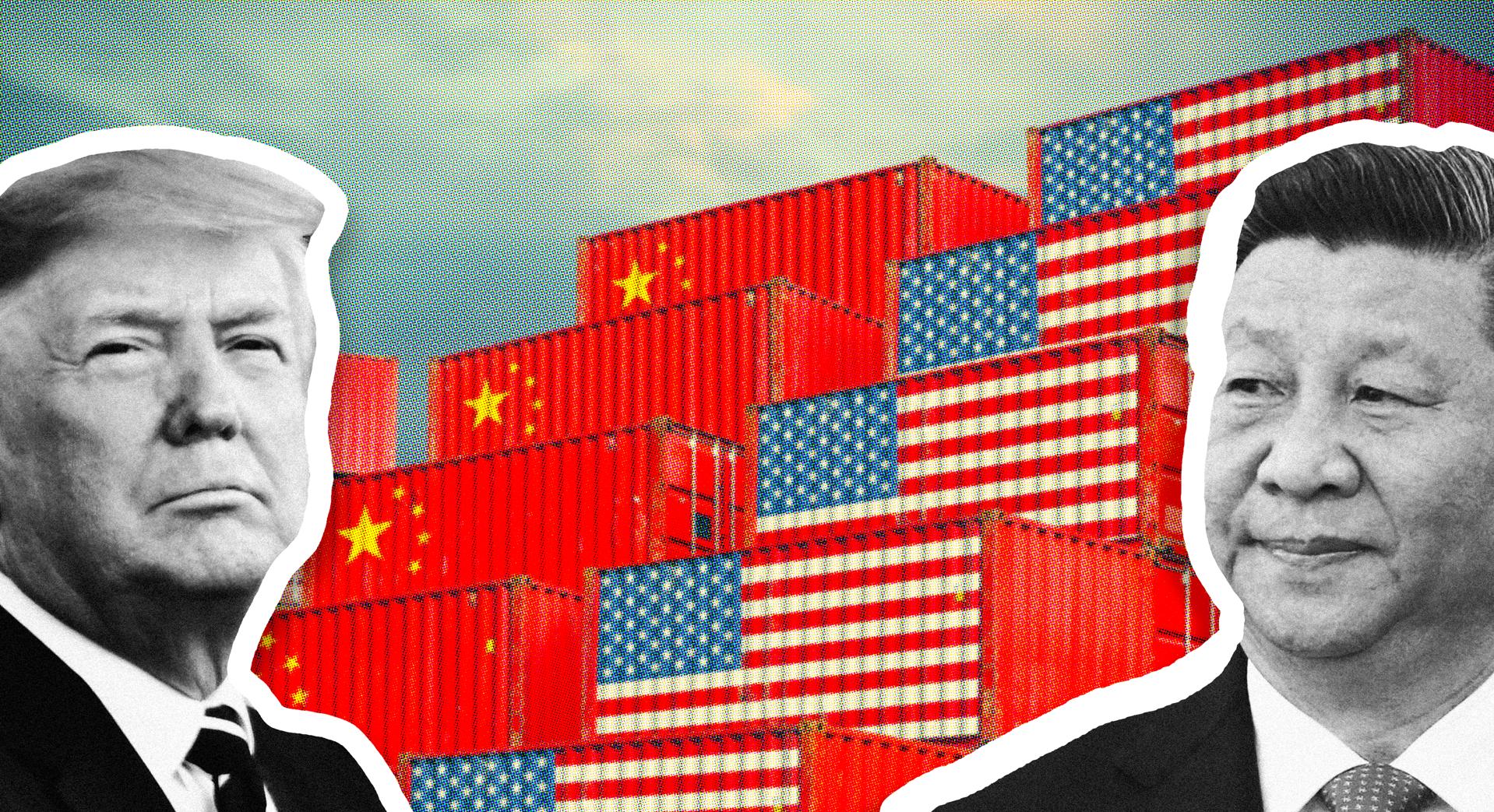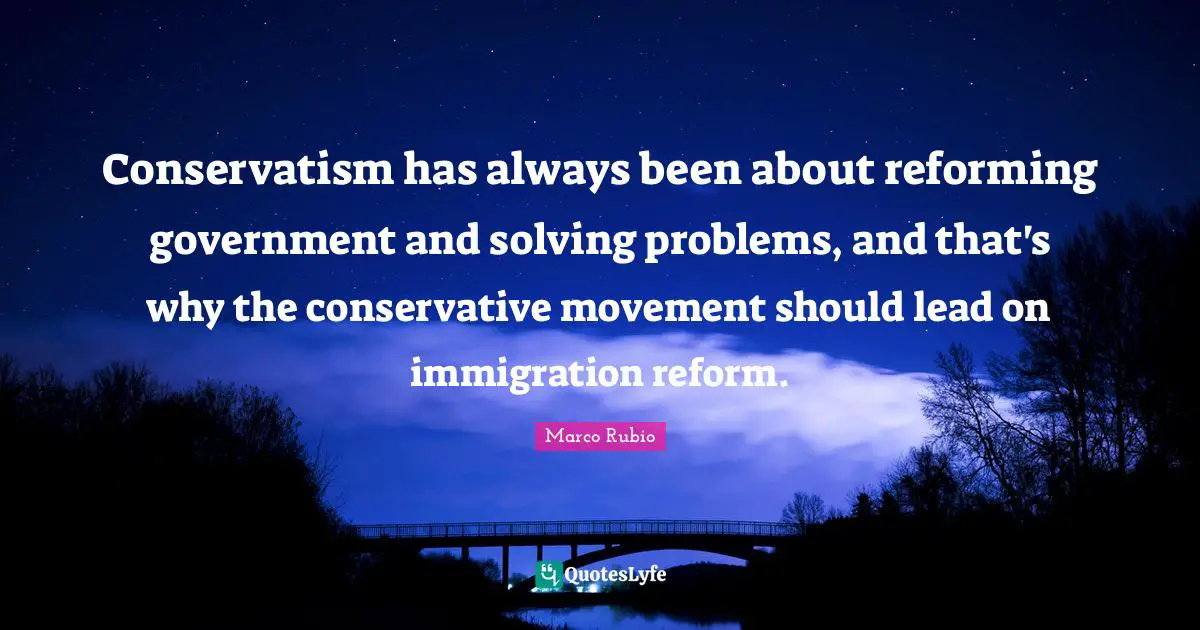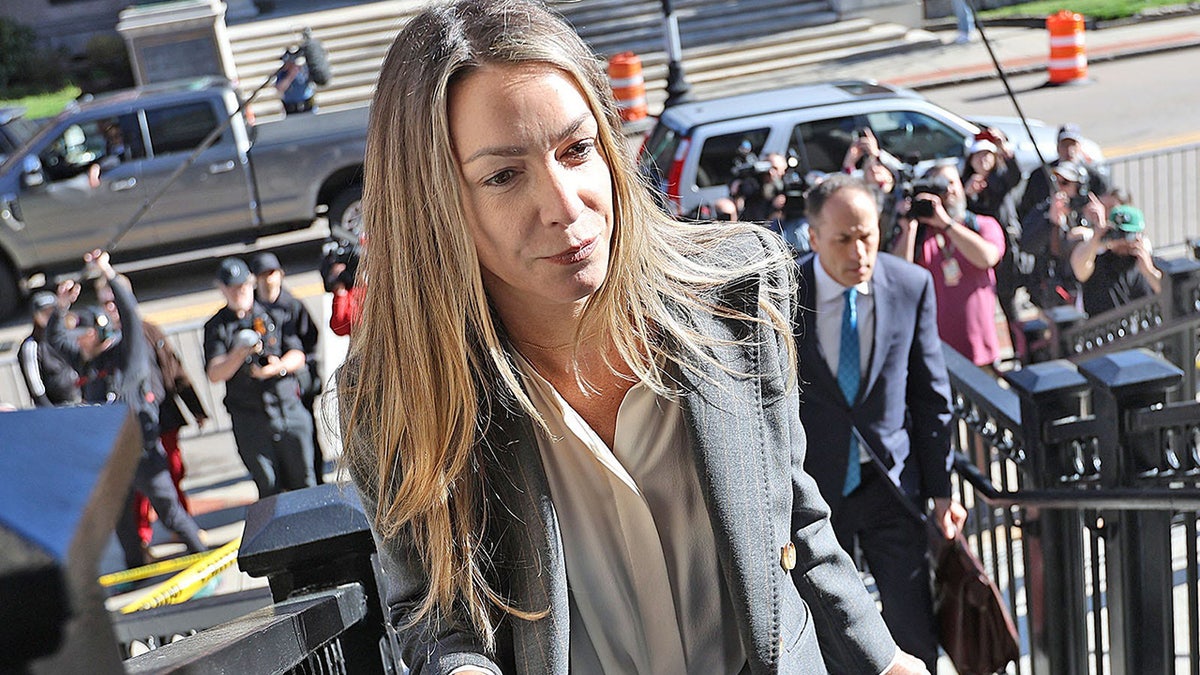Economic Uncertainty: Trump's Impact On The Next Fed Chair's Agenda

Table of Contents
Inflationary Pressures and the Trump Legacy
The Trump administration oversaw a period of rising inflationary pressures, a trend that continues to impact the US economy. These inflationary pressures weren't solely a consequence of external factors; Trump's fiscal policies significantly contributed to the problem. His administration's economic approach focused heavily on stimulating economic growth through significant tax cuts and increased government spending.
- Tax cuts and their impact on aggregate demand: The 2017 Tax Cuts and Jobs Act substantially reduced corporate and individual income taxes. This injection of capital into the private sector boosted aggregate demand, leading to increased consumer spending and business investment. While initially stimulating growth, this also fueled inflationary pressures.
- Increased government spending and its effect on inflation: Simultaneously, the Trump administration increased government spending on infrastructure and defense. This expansionary fiscal policy further contributed to aggregate demand, adding to the inflationary pressures already building.
- Trade wars and their influence on prices: Trump's initiation of trade wars, particularly with China, led to increased tariffs on imported goods. These tariffs raised prices for consumers and businesses, directly contributing to inflation and disrupting global supply chains.
These factors created a complex economic environment, forcing the next Fed Chair to prioritize combating inflation while carefully navigating the potential risks to economic growth. Understanding the intricacies of this inflationary legacy is crucial for effective monetary policy decisions.
The Impact of Trump's Trade Policies on the US Economy
Trump's trade policies, characterized by protectionist measures like tariffs and trade wars, had profound and lasting effects on the US economy. While intended to protect domestic industries and jobs, these policies created significant uncertainty and disrupted established global supply chains.
- Impact on manufacturing and employment: While some sectors initially benefited from protectionist measures, others faced job losses and increased costs due to retaliatory tariffs and disruptions in international trade. The overall impact on manufacturing and employment remains a subject of ongoing debate.
- Changes in international trade relationships: Trump's trade policies strained relationships with key trading partners, leading to a more fractured global trading system. Rebuilding these relationships and fostering a more predictable trade environment will be crucial for the next Fed Chair.
- Uncertainty surrounding future trade agreements: The unpredictable nature of Trump's trade policies left businesses facing significant uncertainty regarding future trade agreements and regulations. This uncertainty hinders investment and long-term economic planning, posing further challenges for monetary policy management.
The next Fed Chair must grapple with the lingering effects of these disrupted trade relationships and navigate the complexities of a less predictable global trade environment when setting monetary policy.
Navigating Political Interference and Maintaining Independence
The Federal Reserve's independence from political pressure is crucial for maintaining its credibility and effectiveness. However, the Trump administration frequently subjected the Fed to public criticism and pressure.
- Examples of Trump's public statements criticizing the Fed: Trump repeatedly criticized Fed Chair Jerome Powell for raising interest rates, accusing him of hindering economic growth. These public attacks undermined the Fed's autonomy and raised concerns about political interference.
- The importance of the Fed's independence in maintaining its credibility: The Fed's independence allows it to make objective decisions based on economic data, rather than bowing to short-term political pressures. This independence is critical for maintaining its credibility and effectiveness in managing the economy.
- Potential strategies for the next Fed Chair to maintain independence: The next Fed Chair will need to carefully balance the need to maintain open communication with the administration while upholding the Fed's independence and commitment to evidence-based decision-making. This might involve emphasizing the apolitical nature of monetary policy decisions and transparently explaining the rationale behind policy choices.
Maintaining the Fed's independence from political pressures while navigating the complexities of the current political climate will be paramount for the next Fed Chair in effectively managing economic uncertainty.
Potential Policy Responses to Lingering Economic Uncertainty
The next Fed Chair will likely need to employ a range of monetary policy tools to address the lingering economic uncertainty inherited from the Trump era.
- Interest rate adjustments: Adjusting interest rates remains a primary tool for managing inflation and economic growth. However, the optimal level of interest rates will depend on the evolving economic conditions and the balance between combating inflation and stimulating growth.
- Quantitative easing or tightening: Depending on the economic situation, the Fed might consider quantitative easing (QE) to inject liquidity into the market or quantitative tightening to reduce liquidity. These unconventional measures have significant implications for the broader economy and require careful consideration.
- Forward guidance and communication strategies: Clear and effective communication regarding the Fed's policy intentions is crucial for managing market expectations and ensuring stability. Transparent communication can help mitigate uncertainty and promote confidence in the Fed's ability to manage the economy.
The appropriate mix of these policies will depend on the evolving economic data and the specific challenges facing the economy at that time. The next Fed Chair's ability to skillfully implement and communicate these policies will be crucial in addressing the lingering economic uncertainty and guiding the US economy toward stability.
Conclusion: Understanding Economic Uncertainty and the Path Forward
The Trump administration's policies have undeniably shaped the current economic landscape, leaving the next Federal Reserve Chair with a complex set of challenges in navigating economic uncertainty. From inflationary pressures fueled by expansive fiscal policies to the lingering effects of disrupted trade relationships and the need to maintain the Fed's independence, the incoming Chair faces a significant task. Successfully addressing these challenges will require careful analysis of the economic data, a commitment to sound monetary policy, and skillful communication to manage expectations and promote confidence. Understanding economic uncertainty and its multifaceted origins is paramount. By carefully analyzing the long-term consequences of President Trump’s economic policies and implementing effective monetary policy, the next Fed Chair can play a critical role in guiding the US economy toward sustainable and stable growth. To further your understanding of economic uncertainty and the critical role of the Federal Reserve, delve deeper into relevant research and analysis through reputable sources. By actively engaging in further research and discussion, we can all contribute to a more informed understanding of this vital issue and its long-term impact on our economic future. The lasting effects of President Trump's presidency on the current state of economic uncertainty require ongoing critical evaluation.

Featured Posts
-
 A Conservative View Reforming Harvard University
Apr 26, 2025
A Conservative View Reforming Harvard University
Apr 26, 2025 -
 Are Chinese Cars The Future A Comprehensive Analysis
Apr 26, 2025
Are Chinese Cars The Future A Comprehensive Analysis
Apr 26, 2025 -
 Ftc Launches Probe Into Open Ai And Chat Gpt Key Questions Answered
Apr 26, 2025
Ftc Launches Probe Into Open Ai And Chat Gpt Key Questions Answered
Apr 26, 2025 -
 Wga And Sag Aftra Strike A Complete Shutdown Of Hollywood
Apr 26, 2025
Wga And Sag Aftra Strike A Complete Shutdown Of Hollywood
Apr 26, 2025 -
 Karen Read Murder Trials A Chronological Account
Apr 26, 2025
Karen Read Murder Trials A Chronological Account
Apr 26, 2025
